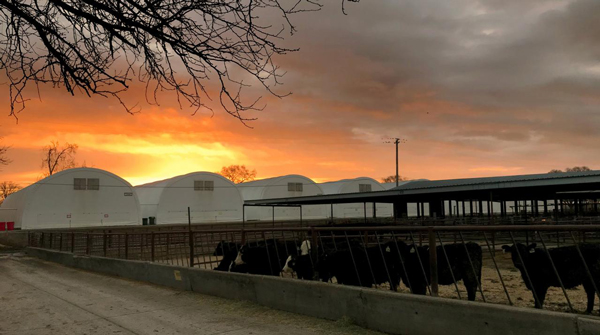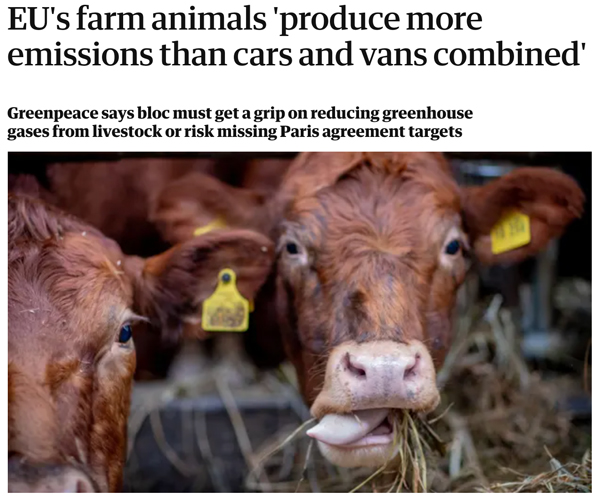
NEW BLOG/THREAD: It’s clear the firehose of misinformation around livestock’s impact on climate is ramping up. When I see misleading headlines on perceived credible media, it disappoints. My new blog brings context that is often missing from this convo. clear.ucdavis.edu/blog/bogus-bur… 1/
This headline for an @latimes column is not only incorrect, but the context within this article lacks any weight to make a real argument supporting the statement. The author says most emissions from agriculture stems from animal ag – that’s inaccurate. latimes.com/business/story… 2/
One fact I’m ALWAYS upfront about is this: There ARE climate impacts from animal ag. They tend to be overblown, but reducing them can absolutely help in our fight against climate change. Swapping burgers is not the climate savior some tend to believe. 3/
It’s true, approx. 10 percent of all U.S. emissions come from agriculture. But animal agriculture’s contribution is around 4 percent of direct emissions from that slice of the pie. The latest @epa numbers actually came out today. epa.gov/ghgemissions/i… 4/
We use direct emissions rather than life cycle assessment (LCA) because it’s most appropriate when comparing different sectors. LCAs for fossil fuel sectors aren't available. In the U.S. cradle-to-grave emissions for beef is 3.3%, dairy – 2%. More: sciencedirect.com/science/articl… 5/
I strive to make my research public – oftentimes, right here on Twitter. If you’re interested, this thread breaks down LCAs extensively:
https://twitter.com/GHGGuru/status/1309613664006144000?s=206/
It’s interesting that I was included in this LAT piece, but the actual authors of the report used as a basis for this column are not quoted. Why? This has the feel of playing the player and not the ball. I have to wonder what the true motives are. 7/
The facts are accessible to those interested in knowing the truth. If you’re familiar with my research, you’re likely aware that I’m dedicated to communicating my work publicly. Here's a recent blog post you may find useful in this conversation: clear.ucdavis.edu/blog/what-if-u… 8/
What is often excluded is that animal ag is making incredible progress in climate mitigation. In California, dairy is on its way to reducing emissions by 25 percent. We released an entire report about this last fall: clear.ucdavis.edu/news/methane-c… 9/
And I’m not the only scientist urging the world to start #RethinkingMethane. In fact, a newly released scientific paper from a group of climate scientists is doing the same, and highlights why reducing methane can have big rewards:
https://twitter.com/GHGGuru/status/1357399374037278722?s=2010/
Here’s more on this report by one of the authors, @civiltalker:
https://twitter.com/civiltalker/status/1357261912178835458?s=2011/
We can’t let articles such as this column act as smokescreens and distractions to the real climate culprits. Here’s a blog with some helpful context to this point:
clear.ucdavis.edu/blog/big-oil-d… 12/
clear.ucdavis.edu/blog/big-oil-d… 12/
There’s also a book by respected and known climate scientist @MichaelEMann explaining these smokescreens in-depth:
https://twitter.com/MichaelEMann/status/133958996746754048113/
When it comes to the climate crisis, writing a misleading headline and article has real consequences. It only moves us further away from solutions by muddying the truth, which will lead us to a warmer world. 14/14
• • •
Missing some Tweet in this thread? You can try to
force a refresh






